Maximising Space Efficiency with Modular Storage Systems
Date Posted:22 August 2024
Investing in modular storage systems is a smart move for any business seeking to improve its storage solutions and make the most of its available space. Whether you’re outfitting a new workspace or upgrading an existing one, modular storage can provide th
In the modern business landscape, efficient use of space is critical to maintaining productivity and reducing operational costs. As businesses grow and evolve, the need for adaptable and space-saving storage solutions becomes increasingly important. This is where modular storage systems come into play. These systems offer flexibility, scalability, and the ability to optimise space usage, making them an ideal choice for various industries. Here’s how modular storage systems can help you maximise space efficiency in your workplace.
Understanding Modular Storage Systems
Modular storage systems are designed to be versatile and adaptable, consisting of interchangeable components that can be configured in numerous ways. These systems can be tailored to fit the unique needs of any workspace, whether it’s an office, warehouse, or retail environment. The primary advantage of modular storage is its flexibility, allowing businesses to expand, reconfigure, or relocate their storage as needed without significant disruption or expense.
Benefits of Modular Storage Systems
1. Customisability
One of the key benefits of modular storage systems is their customisability. Businesses can design a storage solution that perfectly fits their specific requirements. Whether you need shelving, cabinets, racks, or bins, modular systems can be arranged to accommodate different sizes and types of items. This level of customisation ensures that every inch of available space is utilised effectively, reducing wasted space and enhancing organisation.
2. Scalability
As businesses grow, their storage needs often change. Modular storage systems are inherently scalable, allowing for easy expansion. Additional modules can be added to the existing setup without the need for a complete overhaul. This scalability makes modular storage a cost-effective solution, as businesses can incrementally increase their storage capacity to match their growth.
3. Flexibility
Flexibility is another significant advantage of modular storage systems. These systems can be reconfigured to adapt to changing needs. For example, if a warehouse shifts from storing bulk items to smaller components, the storage system can be adjusted accordingly. This adaptability ensures that the storage solution remains relevant and efficient, regardless of how the business evolves.
4. Space Optimisation
Maximising space efficiency is one of the primary goals of modular storage systems. By providing tailored storage solutions, these systems ensure that space is used to its fullest potential. Vertical space can be optimised with tall shelving units, while modular bins and drawers can help organise smaller items. The ability to stack and rearrange modules means that even awkward or limited spaces can be effectively utilised.
5. Improved Organisation
An organised workspace is essential for maintaining productivity and reducing downtime. Modular storage systems promote better organisation by providing designated spaces for different items. This makes it easier for employees to find and access what they need quickly, enhancing workflow and efficiency. Clear labelling and categorisation further improve organisation, ensuring that everything has its place.
Implementing Modular Storage Systems
Implementing a modular storage system requires careful planning and consideration of your specific needs. Here are some steps to guide you through the process:
1. Assess Your Needs
Begin by evaluating your current storage situation. Identify the types of items you need to store, their sizes, and how frequently they are accessed. Consider any anticipated changes in your storage needs, such as business growth or shifts in inventory types.
2. Plan Your Space
Measure your available space and create a layout plan. Determine where different modules will be placed and how they will fit together. Consider both horizontal and vertical space to maximise efficiency. Planning your space helps ensure that the modular system will fit seamlessly into your workspace.
3. Choose the Right Components
Select the modular components that best suit your needs. This might include shelving units, cabinets, drawers, bins, and racks. Ensure that the components are compatible and can be easily reconfigured if needed. Opt for high-quality materials that will withstand the demands of your environment.
4. Install and Organise
Once you have chosen your components, install the modular storage system according to your plan. Take the time to organise your items within the system, ensuring that everything is easily accessible and well-labelled. This initial organisation will set the foundation for an efficient and productive workspace.
5. Review and Adjust
After implementing the modular storage system, regularly review its effectiveness. Gather feedback from employees and observe how well the system meets your needs. Be prepared to make adjustments as necessary, whether it’s reconfiguring modules or adding new components. The flexibility of modular storage systems makes it easy to fine-tune your setup over time.
Modular storage systems offer a versatile and efficient solution for businesses looking to maximise their space. With their customisability, scalability, flexibility, and ability to optimise space, these systems provide a practical and cost-effective way to enhance organisation and productivity. By carefully assessing your needs, planning your space, and choosing the right components, you can implement a modular storage system that grows and adapts with your business, ensuring that you always have the storage capacity you need without compromising on efficiency or organisation.
Investing in modular storage systems is a smart move for any business seeking to improve its storage solutions and make the most of its available space. Whether you’re outfitting a new workspace or upgrading an existing one, modular storage can provide the flexibility and efficiency you need to succeed.


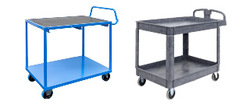
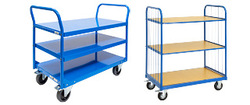
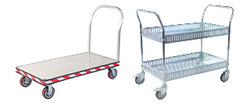
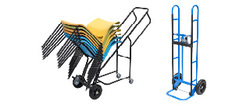
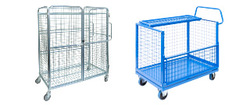
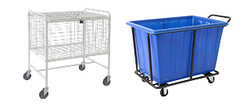
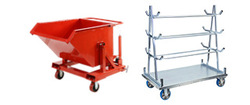
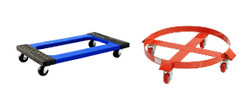
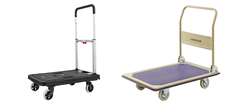
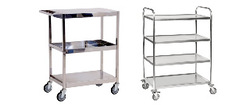
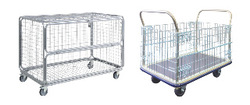
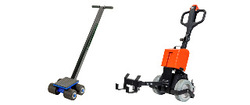
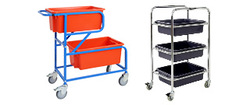
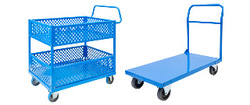
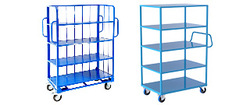
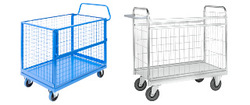
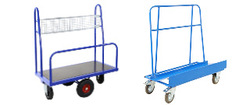
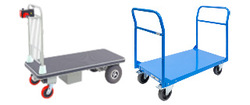
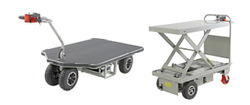
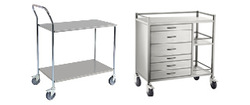
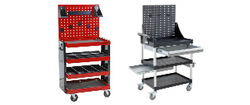
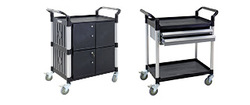
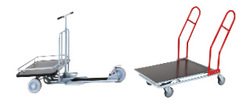
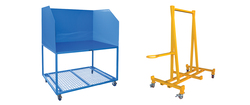



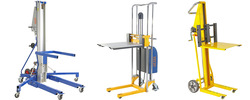



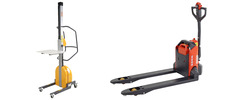
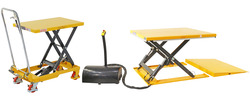
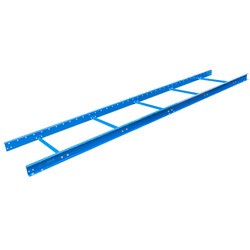
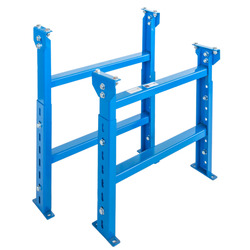
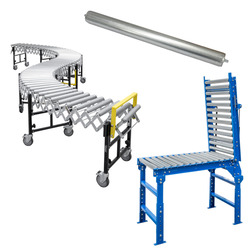
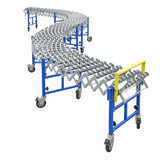



















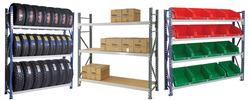
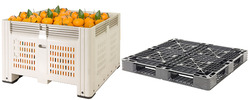
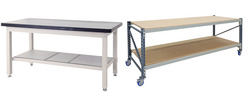
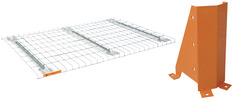
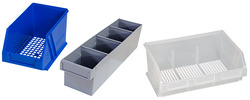

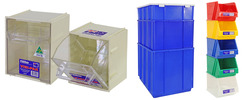

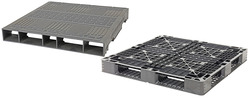

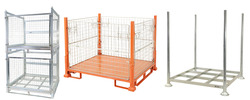
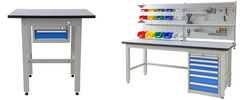
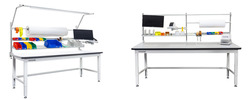






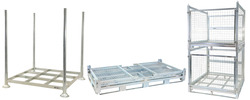
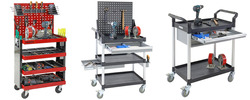
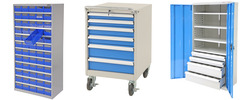

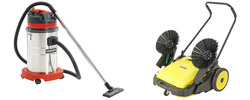





































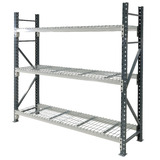















 Trolleys / Hand Trucks
Trolleys / Hand Trucks 2 Tier Trolleys
2 Tier Trolleys 3 Tier Trolleys
3 Tier Trolleys Aluminium Trolleys
Aluminium Trolleys Appliance & Hand Trucks
Appliance & Hand Trucks Cage Trolleys
Cage Trolleys Cleaning Carts & Trolleys
Cleaning Carts & Trolleys Construction Trolleys
Construction Trolleys Dollies
Dollies Foldable Trolleys
Foldable Trolleys Hospital Trolleys
Hospital Trolleys Laundry/Linen Trolleys
Laundry/Linen Trolleys Load Skates & Tow Tugs
Load Skates & Tow Tugs Mail / Office Trolleys
Mail / Office Trolleys Multi Purpose Trolleys
Multi Purpose Trolleys Multi-Tier Shelf Trolleys
Multi-Tier Shelf Trolleys Order Picking Trolleys
Order Picking Trolleys Panel Cart Trolleys
Panel Cart Trolleys Platform Trolleys
Platform Trolleys Powered Trolleys
Powered Trolleys Stainless Steel Trolleys
Stainless Steel Trolleys Tool Trolleys
Tool Trolleys Utility Carts
Utility Carts Warehouse Trolleys
Warehouse Trolleys Custom Trolleys
Custom Trolleys Lifting Equipment
Lifting Equipment Forklift Attachments
Forklift Attachments Jib Attachments
Jib Attachments Lifting Hoists & Pallet Hooks
Lifting Hoists & Pallet Hooks Manual Stackers & Lifters
Manual Stackers & Lifters Pallet Jacks
Pallet Jacks Pallet Lifters
Pallet Lifters Pallet Rotators & Dispenser
Pallet Rotators & Dispenser Powered Pallet Trucks & Electric Lifters
Powered Pallet Trucks & Electric Lifters Scissor Lift Trolleys and Tables
Scissor Lift Trolleys and Tables Conveyor Equipment
Conveyor Equipment Conveyor Frames
Conveyor Frames Conveyor Stands
Conveyor Stands Roller Conveyors
Roller Conveyors Skate Wheel Conveyors
Skate Wheel Conveyors Access Equipment
Access Equipment Container & Yard Ramps
Container & Yard Ramps Step Stools & Ladders
Step Stools & Ladders Work Platforms & Crane Cages
Work Platforms & Crane Cages Drum Handling
Drum Handling Drum Storage & Bunding
Drum Storage & Bunding Drum Trolleys & Lifters
Drum Trolleys & Lifters Forklift Drum Handling
Forklift Drum Handling Containment & Spillage
Containment & Spillage Aerosol Cans Storage Cages
Aerosol Cans Storage Cages Bunded Pallets & Storage
Bunded Pallets & Storage Corrosive Goods Storage Cabinets
Corrosive Goods Storage Cabinets Flammable Liquid Cabinets
Flammable Liquid Cabinets Forklift Gas Storage Cages
Forklift Gas Storage Cages Gas Cylinder Storage
Gas Cylinder Storage Site Storage
Site Storage Spill Kits
Spill Kits Stillage Cages
Stillage Cages Waste Handling
Waste Handling Bin Lifters & Tippers
Bin Lifters & Tippers Plastic Waste Bins and Carts
Plastic Waste Bins and Carts Steel Waste and Tipping Bins
Steel Waste and Tipping Bins Storage Equipment
Storage Equipment Heavy Duty Cabinets & Benches
Heavy Duty Cabinets & Benches Heavy Duty Shelving
Heavy Duty Shelving Mega Bins & Pallets
Mega Bins & Pallets Packing Benches
Packing Benches Pallet Racking Accessories
Pallet Racking Accessories Parts Trays & Stor-Pak Bins
Parts Trays & Stor-Pak Bins Pegboard & Louvre Panels
Pegboard & Louvre Panels Plastic Bins
Plastic Bins Plastic Handling Solutions Bins
Plastic Handling Solutions Bins Plastic Pallets
Plastic Pallets Stack & Nest Bins
Stack & Nest Bins Storage Cages
Storage Cages Workplace Equipment
Workplace Equipment Workbenches
Workbenches Modular Workbenches
Modular Workbenches Electric Height-Adjustable Workbenches
Electric Height-Adjustable Workbenches Floor Matting
Floor Matting Industrial Weighing Scales
Industrial Weighing Scales Pallet Wrapping & Packaging Machinery
Pallet Wrapping & Packaging Machinery Ramps
Ramps Stationery Cupboards
Stationery Cupboards Storage and Stillage Cages
Storage and Stillage Cages Tool Trolleys
Tool Trolleys Tooling Cabinets
Tooling Cabinets Wheelie Bins
Wheelie Bins Workshop Equipment
Workshop Equipment Safety Equipment
Safety Equipment Gloves and PPE
Gloves and PPE Pallet Rack Post Protectors
Pallet Rack Post Protectors Safety Barriers & Bollards
Safety Barriers & Bollards Safety Knives & Cutters
Safety Knives & Cutters Signs and Traffic Supplies
Signs and Traffic Supplies Tool & First Aid Boxes
Tool & First Aid Boxes Construction Equipment
Construction Equipment Concrete Equipment
Concrete Equipment General Site Equipment
General Site Equipment Lifting Equipment
Lifting Equipment Site Storage
Site Storage Waste
Waste  MHA's Specials
MHA's Specials










